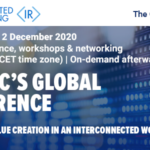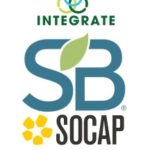The Global Reporting Initiatives conference on sustainability and reporting, Reporting: a Measure of Sustainability, will draw together an impressive array of more than 120 speakers and participants from around the world. Date: 3 and 4 october 2006 in Amsterdam.
Speakers include former USA Vice-President Al Gore, Chair
of Anglo American Sir Mark Moody-Stuart, European Commission Vice-President Margot Wallström, UN Environment Program Executive Director Achim Steiner, and other leaders from international organizations, government, business, and civil society. The conference will also feature the launch of the new G3 Sustainability Reporting Guidelines, which make reporting simpler and pave the way for even wider adoption of GRI sustainability reporting.
All sessions have simultaneous translation into French and Spanish.
Plenary sessions gather senior business and civil society speakers to pose fundamental questions: What do you know about your organizations sustainability impact? How can sustainability reporting enhance trust? What is the future of sustainability?
Leadership tracks focus on: the business case and global best practice; emerging and capital markets; corporate governance and assurance, the license to operate, and supply chain management; SMEs and public agencies; the main norms and standards; and whats new in the G3 Guidelines.
The conference and launch have been generously supported by premium sponsor ABN Amro. Other leading organisations sponsoring the event include the City of Amsterdam, Deloitte, Getronics, Heineken, KLM, Netherlands Ministry Foreign Affairs, Netherlands Ministry of Economic Affairs, Netherlands Ministry VROM, NCDO, Numico, Philips, TATA & Sons, TNT, RSDB, Triodos, Deutsche Bank and Telefónica.
The conference and G3 launch will be the culmination of several years of work by GRI stakeholders, involving thousands of companies, NGOs, civil society, labor and other international organizations and experts from around the world. This included some 30 preparatory Sneak Peek conferences on all continents in February and March 2006, which drew some 3000 participants.
The new G3 Guidelines are a significant step forward in the evolution of sustainability reporting. They build upon the 2002 reporting framework, simplify many reporting tasks, and underpin all indicators with protocols. They will further enhance GRIs position as the global framework for companies and organisations to report their sustainability performance.
What GRI does
GRI promotes transparency and accountability by developing and disseminating a globally applicable reporting framework for organizations to disclose their economic, environmental and social impacts.
At the core of the GRI Reporting Framework are the Sustainability Reporting Guidelines. Other elements are Sector Supplements and Protocols. All elements of the Reporting Framework are provided as a free public good and are intended for voluntary use by organizations, irrespective of their size, background, or geographical location.
At GRIs heart is a formalised multi-stakeholder consensus seeking process, guided by GRIs Board of Directors, Stakeholder Council and Technical Advisory Committee. GRI is also supported by a small Secretariat of about 20 staff, headquartered in Amsterdam.
The multi-stakeholder approach can be resource intensive and challenging. However, drawing upon different constituencies and expertise guarantees that the end product is applicable, credible and widely supported.
GRI Users
The GRI Reporting Framework is the global de facto standard in sustainability reporting. 850 organizations from 60 countries use the GRI Guidelines. GRI-reporters include high-profile multi-nationals such as Shell and Nike, organizations in emerging economies, and small not-for-profit agencies. Search GRI reporters at www.globalreporting.org/
Service Partners
For the first time since GRIs inception in 1997, we are embarking on exciting new future by partnering with service providers to offer a range of products and services to our stakeholders. These services will enable and support use of the Reporting Framework, particularly the G3 Guidelines.



